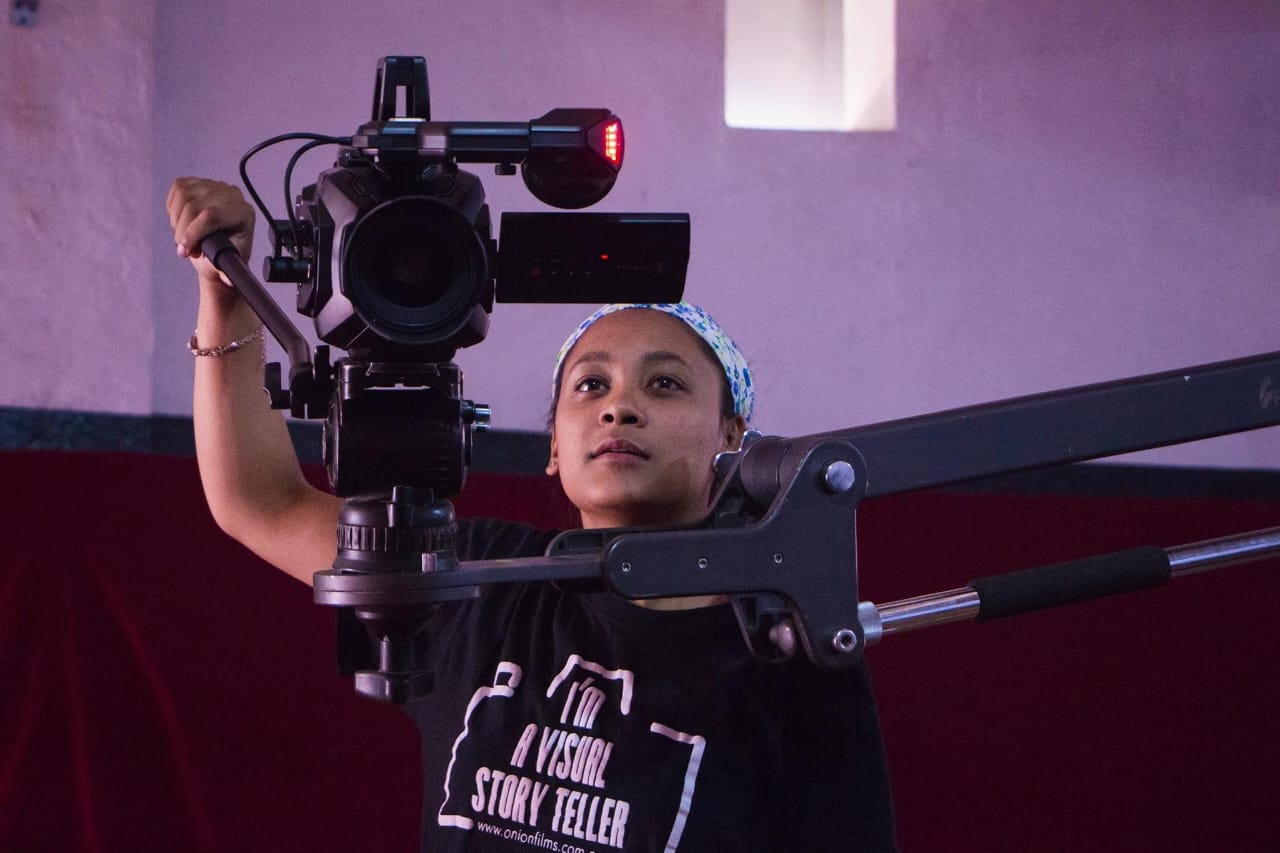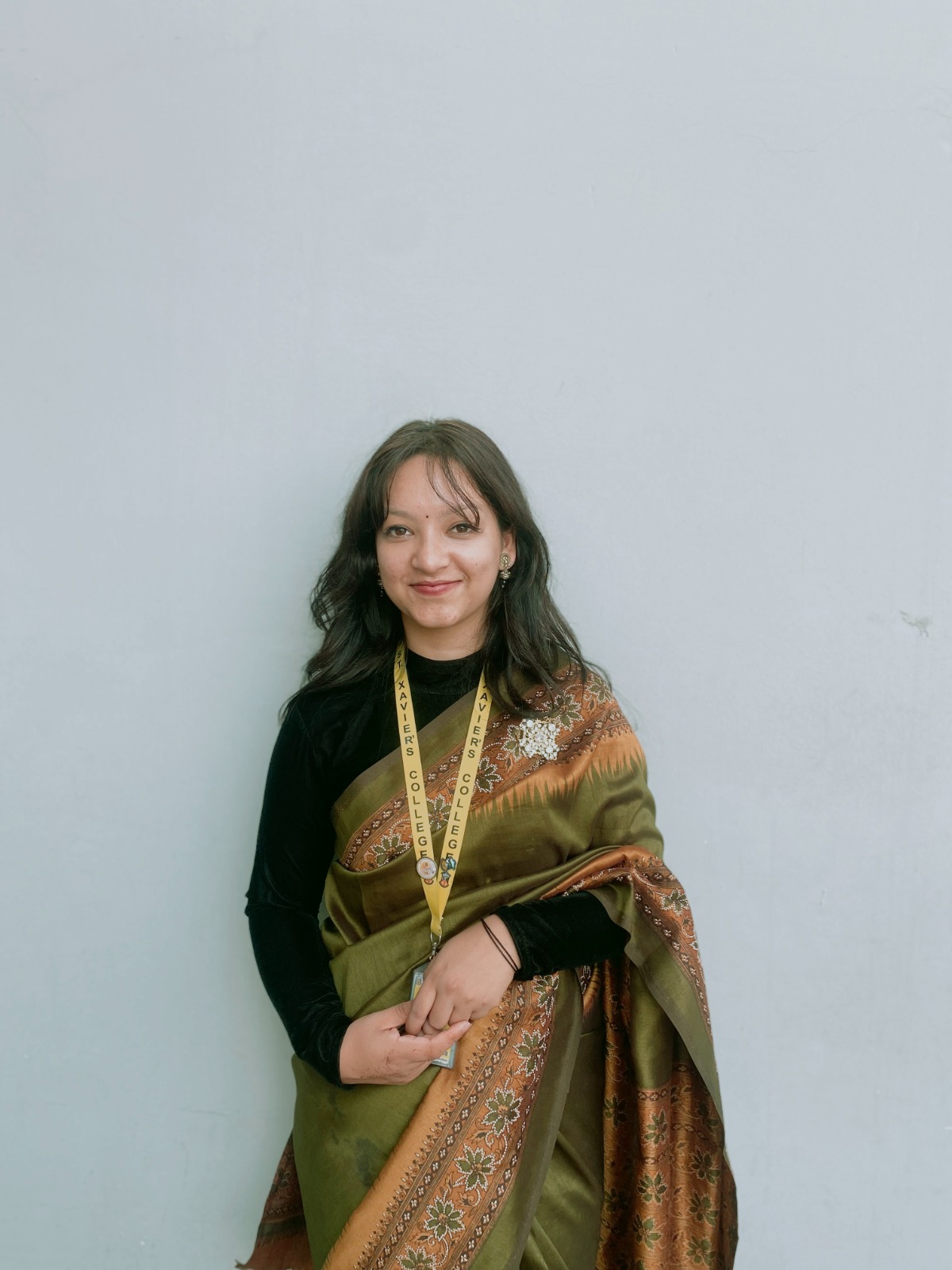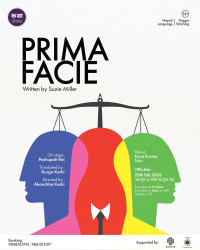Culture & Lifestyle
Once a CA aspirant, now a movie maker
Rajeela Shrestha on filmmaking, uncertainty and telling stories when no one’s listening.
Aarya Chand
Growing up in Kathmandu, Rajeela Shrestha never imagined she’d become a filmmaker. For much of her adolescence, she was convinced her path would be quite different, and she’d pursue Chartered Accountancy for stability.
Her plan changed when a subtle insecurity, triggered by a classmate who consistently outperformed her, made her pause and rethink her path.
What happened next wasn’t a dramatic shift but a simple conversation with her father. He urged her to consider alternative careers, like journalism and filmmaking, as she had a passion for writing, which drew her interest in filmmaking.
Her CA instructor connected her to his sister-in-law, Rasila Shrestha, who had just finished film school. “We laughed about our names,” she says. ‘‘She invited me to visit Oscar International, her college. The building was painted black and white. It had a pull. I just knew—I was going to study there.”
Her entry into filmmaking began in 2014 with a 21-day workshop organised by Onion Films, where she learned the basics—cinematography, scripting, editing, sound, and acting.
The short film she created there earned her a scholarship at Oscar International College. “My family, especially my mother, wasn’t convinced,” she says. “But when my first film ‘Jeevika’ premiered at Shilpee Theatre, she and her friends came to watch it.’’ Until then, people would tell her—“What can your daughter possibly do with film?”
Shrestha’s filmmaking took a more urgent turn after the 2015 earthquake, as she focused on community narratives shaped partly by personal loss. “I lost a family member,” she says. “I felt numb and didn’t know how to respond. My father, who had returned to Nepal, encouraged me to do something as a film student.”
That encouragement led to ‘Radio Melamchi 107.2,’ her first documentary. It followed a community radio station in Sindhupalchowk, the district worst hit by the earthquake—working tirelessly to deliver relief and information despite their own building collapsing. “They were victims, too,” she says. “But they refused to stay defeated.”
Her follow-up documentary ‘Maila Dai’ in 2017, was also set in Sindhupalchowk. “I didn’t know the man personally. I read him on the BBC,” she says of Maila Lama, a local who rebuilt his village (Manekharka community) after the quake. “I had no contact. I reached there and asked around. He had gone to Kathmandu, but his wife was there. I returned after confirming the story and made the film,” she says. “It ended up being my graduation project.”
Though her work was gaining ground, studying filmmaking came with challenges, especially as one of only two women in her class—and the other dropping out. “It didn’t register at the time. But later I saw how difficult it was to navigate,” she says. “The spaces weren’t built for us.”
In 2018, while filming a feature in Mugu, Shrestha was harassed by a team member she had chosen. “I couldn’t tell anyone. Not even my family,” she says. “There were no visible women to look up to in the film community as well.” It affected her confidence and forced her to reconsider her place in the industry.
She turned inward—capturing personal stories of her parents, sister, and grandmother. “I needed to heal,” she says. During this time, she received the Toni Hagen Documentary Youth Grant (2019), and spent the lockdown years learning camera work. “I didn’t study documentaries formally. I learned by doing,” she says.
Despite this progress, Shrestha remains outside the mainstream Nepali film industry. “I’ve been working independently, learning through experience. Not many people start with documentaries, but I did. I didn’t plan to. But by the time we feel ready to make a film, so many stories are already lost,’’ she says.
One project during this healing period became personal: a music video for Ani Choying Drolma titled ‘Bhagwan Kaha Ma Jau’, which was released in 2023. The song touches on themes of harassment. “I was in a terrible state when I made it,” she admits. “But that video felt like removing a heavy stone from my chest. Sometimes advocacy just happens—without planning.”

In the same year, after attending a workshop in the US with Global Media Makers, she returned and launched selF-ilm: Mobile Filmmaking Workshop for Women in partnership with her sister’s organisation, Girls Empowered by Travel Nepal. “It’s hard to find women who teach filmmaking,” she says. “So I wanted to pass on what I’d learned—to show women and queer participants they don’t need fancy gear to tell their stories. A phone is enough to begin.”
Teaching has since become integral to her practice. “I worked at Nepal Film School for a year and a half. Students still reach out with questions. I help them with PDFs and advice,” she says.
Her recent work, ‘Chhesang’, explores menstruation and gender dysphoria through the story of a trans man. “I had never heard that trans men menstruate. When I found out, I wanted to document that discovery,” she says. The film screened at several festivals, and during one show, ‘‘Chhesang brought his grandfather along. To his grandfather, he still appeared as a granddaughter. That screening was a significant step toward embracing his true self.”
Shrestha still describes herself as struggling due to filmmaking’s financial instability. “Sometimes I think about leaving everything. Being the eldest daughter comes with responsibility,” she says. “But I know I’ll survive somehow.”
Her current focus is on a long-term first feature documentary that began in 2018—it follows two brothers who were sent from their Hindu family in Karnali to become monks in Kathmandu. “I met them in 2018. They were just kids. During lockdown, they left the monastery and returned home,” she says. “Now, I’m tracing what they learned, how they’ve grown.” She hopes to release the film in 2028, but money is a constant barrier. “Adding a crew member will cost up to Rs1,00,000. Filmmaking is teamwork. I can’t do it alone.”
She’s been attending pitching forums in places like the US, Korea, and India, hoping to find international co-producers. Alongside this project, she’s also working on a more commercial assignment: producing the video for Nepal’s Miss World submission.
Looking ahead, Shrestha plans to complete a few short fiction films before eventually releasing her first feature. “I’ve decided that when I return to the industry, I’ll choose who I work with carefully,” she says. “I want to work with people who treat film like their religion.”
Rajeela Shrestha’s movie recommendations
Who Will Be The Gurkha?
Director: Kesang Tsheten
Year: 2012
Honeyland
Director: Tamara Kotevska, Ljubomir Stefanov
Year: 2019
Finding Vivian Maier
Director: John Maloof, Charlie Siskel
Year: 2013
No Crying At Dinner Table
Director: Carol Nguyen
Year: 2019
Against The Tide
Director: Sarvnik Kaur
Year: 2023




 13.12°C Kathmandu
13.12°C Kathmandu















